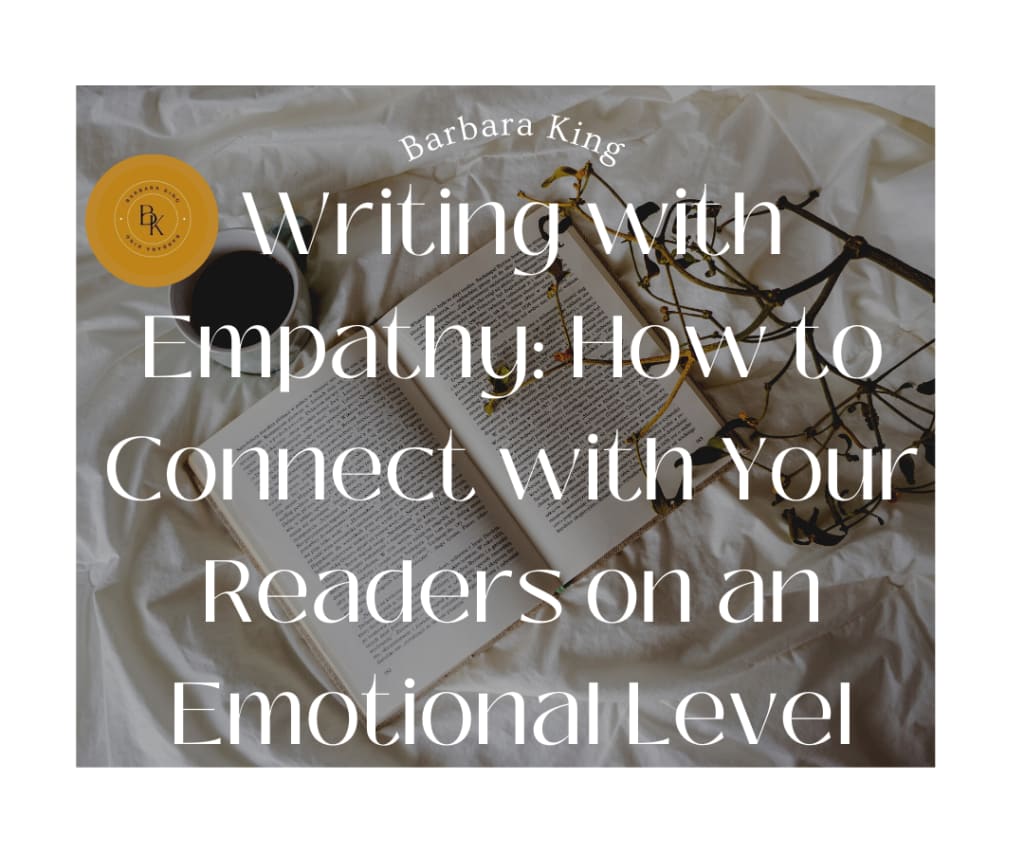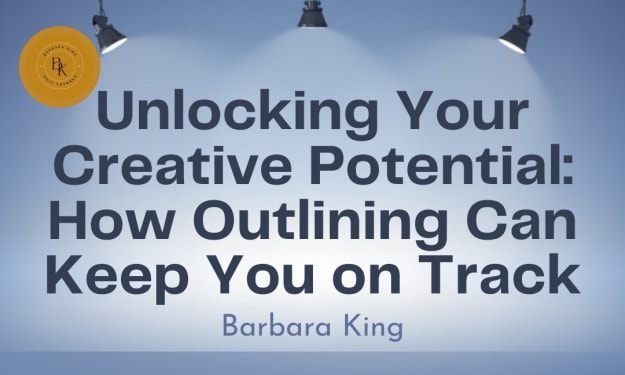Writing with Empathy: How to Connect with Your Readers on an Emotional Level
Without a reader connection, your book has no story.

Have you ever tried to read a story and just couldn't get into it?
You read maybe 20–50 pages and decide that there's nothing of interest to keep you invested enough in the story to even want to keep reading it no matter how much you may have paid for it or how long it's been sitting on your TBR pile.
Chances are you couldn't connect with the character.
It doesn't matter how much of a wild adventure your story is, your main character could be on a daredevil wild adventure with twists, turns and cliffhangers abound, but if your reader can't connect with them then they're not going to care if they made it to the end of the space race and saved their village.
This is especially the worse thing to happen if you're writing a romance novel or one of those chick-lit novels that are supposed to make everybody cry.
No emotional connection = no invested reader.
So what's the secret?
Empathy.
Empathy is the ability to understand and share the feelings of others and just as it's important to have in real life to be a decent human being, it's also important to understand the internal and external struggles your character may be facing in your story.
You don't want your reader to just.. well read.. your story. You want them to be in your story, to experience and feel the story as if it is happening to them. This is what sucks readers into a book and makes it so they start reading a few chapters just before they go to bed and all of a sudden it's 4 am and they're still glued to the book and ignoring the chirping of birds out their window, they'll just read one more chapter before going to sleep.
How do you write with empathy?
Develop Relatable Characters
A relatable character is one who possesses qualities and even flaws your reader can identify with. Let's use Harry Potter from J.K. Rowling's Harry Potter series.
Almost all readers can relate to Harry Potter, not because they too were teenage wizards whose sole purpose was to stop a big bad wizard from killing all of their friends and family, but because underneath all that he's just an ordinary boy. He struggles with self-doubt, feels like the weight of the world is on his shoulders, experiences loss, and grief, and still has moments where he tried to just be a student despite what's going on around him. Despite everything he faces he remains brave as a Gryffindor and determined to do what's right even if it means putting himself aside.
Despite the Harry Potter series being targeted at younger children, readers of all ages can find something to relate to in the series. One of the biggest is escapism. Harry wants to escape the abusive life he lives locked under the stairs and the reader is looking for an escape from their everyday world of school, work, laundry, chores, repeat.
Show, Don't Tell
Yes, yes, I know. If you've been around the writer world or just anywhere on the internet you've heard the phrase show, don't tell more times than you've thought about writing your book, and that's really saying something.
To create empathy in your story you still need your reader to connect to your character and by using show instead of tell they're much more likely to become absorbed in your pages.
You never want to say:
"Elizabeth was angry."
This is telling and if your reader is in your character's head they should know that she is angry without being told, instead write more on the line of -
"Elizabeth balled her fists, her nails digging into her palms deep enough to draw blood. Her heart raced and her breaths were coming out in short, sharp gasps."
Draw From Your Own Experiences
Sure you've never lived through a zombie-apocalyptic world, but unfortunately you've just lived through Covid.
There was isolation, loneliness, limited resources, and overall changes in societal norms.
Life is full of experiences your reader will also face in your story.
Dealing with family pressure, moving to a new place, starting a new school, going through a breakup or a divorce, overcoming or submitting to personal fear.
Fiction is only false in the scenarios that take place, not in the emotions that are felt by your characters during their story.
When writing draw from similar experiences you've faced and put those feelings you had into your character. This will help your reader connect to your characters on a deeper level.
Conclusion
Empathy is a necessary part of writing that will leave your readers lacking a connection to your story without it.
No matter what type of story you are writing you need your reader to connect with your characters.
Best of luck and keep writing.
With love,
B.K. xo xo
*If you've liked what you read you can show your support by subscribing, pledging your support, or leaving me a tip that directly supports and aids me as a writer.
By joining Vocal+ you can earn more per read on every story you publish on Vocal.
Click my link to start your 7-day free trial today and start earning more for your stories.
_____________________________________________
This story was originally posted on Medium.
If you would like to experience Medium yourself, consider supporting me and thousands of other writers by signing up for a membership. It only costs $5 per month, it supports us writers, greatly, and you have the chance to make money with your own writing as well. By signing up with this link, you'll support me directly with a portion of your fee, it won't cost you more. If you do so, thank you a million times!
If you love what you've read you can also show your support by buying me a cup of coffee to fuel my writing.
https://www.buymeacoffee.com/barbaraking
*Contains Affiliate Links
About the Creator
Elise L. Blake
Elise is a full-time writing coach and novelist. She is a recent college graduate from Southern New Hampshire University where she earned her BA in Creative Writing.
Enjoyed the story? Support the Creator.
Subscribe for free to receive all their stories in your feed. You could also pledge your support or give them a one-off tip, letting them know you appreciate their work.






Comments
There are no comments for this story
Be the first to respond and start the conversation.